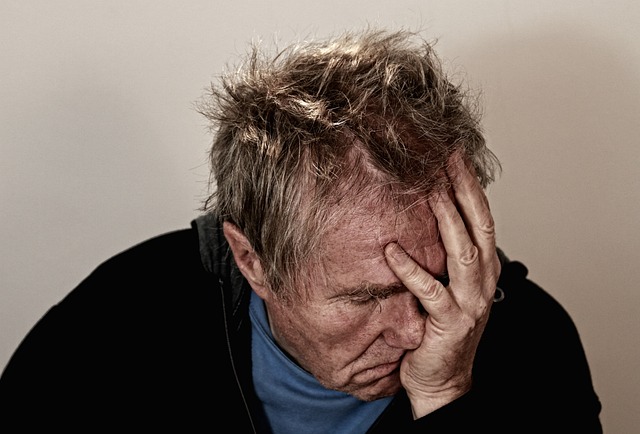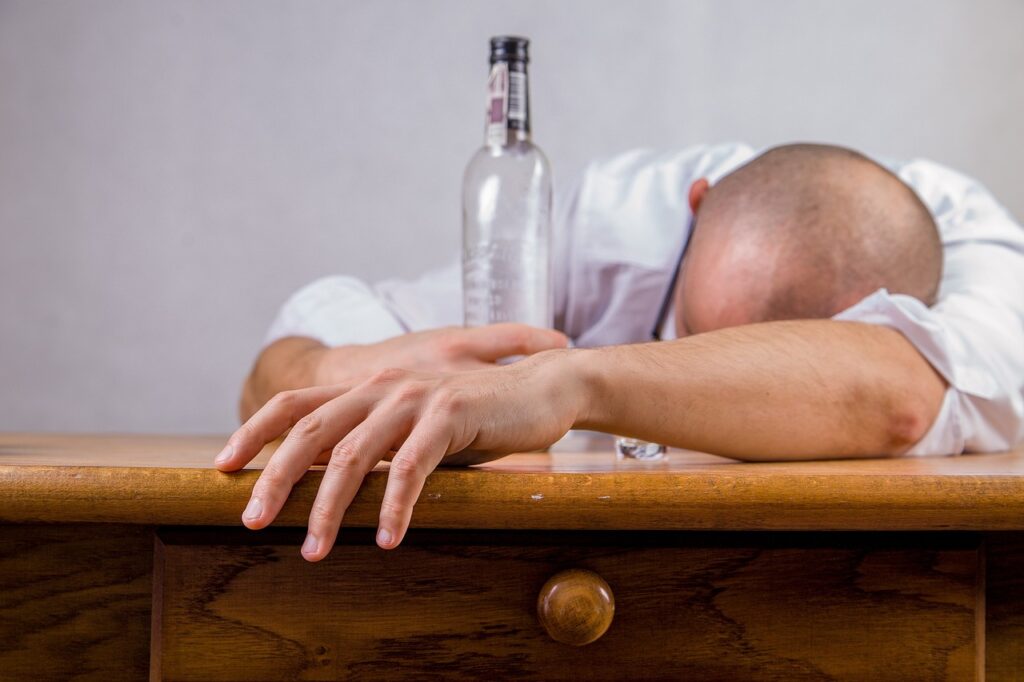20+ Years Experience
Specialist Private Alcohol Rehab

Embarking on the journey to reclaim your life from alcohol addiction can be overwhelming, but recognising the signs of needing an alcohol detox is the first crucial step.
In this blog post, we will explore the various symptoms, stages, and strategies for a successful alcohol detox.
With the right knowledge and support, you can overcome this challenging phase and move towards a healthier, alcohol-free life.
Recognising the signs of alcohol detox is essential for seeking timely intervention, as alcohol withdrawal symptoms can worsen without proper care.
The severe symptoms can manifest physically, emotionally, and behaviorally, painting a picture of the severity of one’s alcohol use disorder.
Understanding these signs can help you decide when it’s time to seek professional help and embark on a detox plan to regain control of your life.
Physical symptoms of alcohol detox can range from mild symptoms to severe, with cases presenting headaches, nausea, and tremors, among other discomforts.
More severe withdrawal symptoms may include hallucinations, seizures, and delirium symptoms, which require immediate medical attention.
Being aware of these physical symptoms can help you and your loved ones identify the need for an alcohol detox and seek professional assistance in addressing alcohol abuse.
Emotional and psychological symptoms may present during alcohol detox, such as anxiety, depression, and irritability.
These symptoms can make the detox challenging, as individuals may experience mood swings, restlessness, and difficulty concentrating.
Seeking professional help during this time is crucial for a safe and effective recovery.
Medical professionals can provide guidance, support, and medications to help manage these emotional and psychological symptoms during the detox.
Behavioural indicators of alcohol detox include changes in sleep patterns, social withdrawal, and neglecting responsibilities.
These signs may manifest as irritability, agitation, mood fluctuations, and increased secrecy surrounding alcohol intake.
Recognising these behavioural indicators can help you and your loved ones determine the necessity for alcohol detox and take the first step toward recovery.
Alcohol withdrawal syndrome is a reaction that occurs when an individual who has become dependent on alcohol is suddenly deprived of it.
Understanding this syndrome is vital for managing withdrawal symptoms, as it involves learning about the role of the central nervous system and the severity of withdrawal symptoms.
By understanding the intricacies of alcohol withdrawal syndrome, you can better navigate the detox and seek appropriate help.
The CNS plays a significant role in alcohol withdrawal, as it adapts to the presence of alcohol and reacts when alcohol consumption is reduced or stopped.
Alcohol’s effects on the CNS are mediated through actions on various neurotransmitters, and during withdrawal, there is an overactivity of the sympathetic nervous system, resulting in symptoms such as anxiety and increased production of norepinephrine.
This intricate interplay between neurotransmitters and the CNS contributes to the emergence of alcohol withdrawal symptoms.
The severity of withdrawal symptoms varies depending on factors such as duration and amount of alcohol intake, personal health, and previous withdrawal experiences.
In cases of severe alcohol dependence, severe symptoms of alcohol withdrawal can include hallucinations, seizures, and delirium symptoms, which require immediate medical help.
Understanding the factors that influence the severity of withdrawal symptoms can help you and your loved ones prepare for the detox and seek appropriate interventions to manage these symptoms.
The alcohol detox timeline consists of three stages: early, peak, and late, with common symptoms appearing and subsiding at different times.
Being aware of this timeline can help you and your loved ones monitor the detox process, understand the expected progression of symptoms, and seek timely professional help when needed.
It is important to note that the timeline of alcohol detox can vary from person to person, depending on the person’s needs.
Early-stage symptoms (6-12 hours after the last drink) may include anxiety, insomnia, and tremors.
It is crucial to seek medical guidance during this time to ensure a secure detoxification process, as the severity of alcohol withdrawal symptoms can quickly escalate, especially for those who decide to stop drinking alcohol.
Medical professionals can provide support and medications to help manage these early stage symptoms and monitor your progress throughout the detox.
Peak-stage symptoms (24-72 hours after the last drink) can involve hallucinations, seizures, and an increased heart rate.
The peak stage of alcohol detox is a critical period when individuals experience the most intense withdrawal symptoms, which can be a result of the body’s reaction to the sudden absence of alcohol or other drugs.
It is essential to receive professional guidance during this stage to guarantee a secure detoxification process and proper management of these potentially life-threatening symptoms, including blood pressure fluctuations.
Late-stage symptoms (5-7 days after the latest drink) usually show a decrease in severity, with most symptoms subsiding.
However, withdrawal symptoms such as delirium may still be experienced, which can be hazardous and necessitate medical care.
Consulting a medical professional during this stage is vital for ensuring a safe and effective recovery from alcohol addiction, as they can guide you on how to stop drinking alcohol.
Alcohol use disorders are becoming more common. If you are struggling with substance abuse, it is important to get a professional to help you detox safely.
Seeking professional help for alcohol detox involves medical supervision, medications for withdrawal symptoms, and choosing between inpatient care and outpatient treatment.
Obtaining the right support and guidance during the medical detox process is critical for a successful recovery and long-term abstinence from alcohol.
Medical supervision during detox ensures safety and proper management of alcohol withdrawal symptoms.
Severe shaking, repeated vomiting and hallucinations are signs that medical attention is needed. If you experience any of these symptoms, seek medical advice immediately.
Medical professionals can provide guidance, support, and medications to help manage these symptoms and monitor your progress throughout the medical detox process.
If you suddenly decrease your alcohol intake, you may experience severe withdrawal symptoms. Medications can be used to control these symptoms after stopping heavy drinking.
Benzodiazepines and other medications can help manage withdrawal symptoms and reduce the risk of complications.
These medications have been shown to:
Consulting a medical professional during alcohol detox is crucial for determining the appropriate medications and dosage for your specific needs.
For more information on withdrawal symptoms following a drinking problem, please make sure to contact our team.
When alcohol level suddenly drops various health problems can occur and can even be life threatening.
Inpatient detox provides a controlled environment for severe cases, while outpatient detox allows for more flexibility and independence.
Inpatient detox offers a regulated environment, round-the-clock medical oversight, and availability of medications to help cope with alcohol withdrawal symptoms.
Outpatient detox affords greater flexibility and autonomy and is generally more economical than inpatient detox.
However, outpatient detox may not be appropriate for those with severe alcohol use disorder, as it does not provide the same degree of medical monitoring and access to medications as inpatient detox.
Strategies for successful alcohol detox include creating a support system, managing triggers and cravings, and developing healthy lifestyle habits.
Implementing these strategies can help you maintain long-term recovery from alcohol addiction and improve your overall well-being.
A strong support system, including friends, family, and professional help, is crucial for a successful medical detox.
This support system can provide emotional support, accountability, peer understanding, practical aid, and long-term rehabilitation.
It is essential to establish a support network during alcohol detox, as it can help you navigate the challenges of withdrawal symptoms and provide encouragement during your journey to recovery.
Managing triggers and cravings involves:
Developing coping mechanisms, such as engaging in healthy habits, seeking support from your network, or participating in support groups, can help you manage cravings and maintain your sobriety.
Developing healthy lifestyle habits can aid in long-term recovery from alcohol dependence. Some key habits to focus on include:
By incorporating these habits into your daily routine, you can support your recovery journey and improve your overall well-being.
Stress management techniques, such as mindfulness, yoga, and meditation, can also be advantageous in maintaining sobriety and overall well-being.
In conclusion, recognising the signs of alcohol detox is essential for timely intervention and successful recovery.
Understanding the alcohol withdrawal syndrome, the detox timeline, and the importance of professional help can guide you through this challenging process.
Implementing strategies such as creating a strong support system, managing triggers and cravings, and developing healthy lifestyle habits can help you maintain long-term sobriety and improve your overall well-being.
With the right knowledge and support, you can overcome alcohol addiction and reclaim your life.
Common signs of detoxing include fatigue, headaches, nausea, vomiting, excessive sweating, and loss of appetite.
Other symptoms may include irritability, insomnia, and an increase in thirst.
When you stop drinking completely, some common withdrawal symptoms include:
It is important to get professional support before attempting to quit drinking abruptly, as more serious symptoms and severe consequences may occur.
If you are unable to control how much or when you drink alcohol, or cannot stop once you start, you may be an alcoholic.
The typical alcohol detox timeline usually takes about 5-7 days to complete.
The CNS plays a significant role in alcohol withdrawal, adapting to the presence of alcohol and reacting when alcohol consumption is reduced or stopped.
When the alcohol consumed is reduced or stopped, the CNS must adjust to the change.
This can lead to a range of alcohol withdrawal symptoms, including anxiety, insomnia, tremors, and nausea. To reduce the severity of these problems.
For more details on the symptoms of alcohol withdrawal, make sure to speak to our team today.
There are a range of other services that we can provide. Have a look at the list below for more information:


















We Aim To Reply To All Enquiries With-in 24-Hours